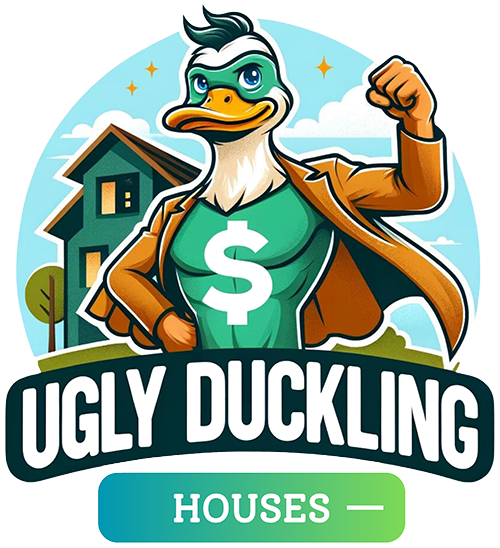
While inheriting a property might initially seem like a gift, it’s crucial to understand the possible hidden expenses that can accompany it. You might find yourself navigating a whirlwind of emotions—grief over your loss, stress from financial obligations, and potential conflicts with family members—all of which can be overwhelming. Understanding the costs involved in taking ownership of an inherited home in Wisconsin is essential to making informed decisions. In this guide, we’ll explore various expenses you may encounter when you inherit a property, helping you to manage the process more smoothly.
Not only are you dealing with the emotional impact of losing a loved one, but you’re also faced with practical considerations that you may not have anticipated. From legal paperwork to unexpected bills, the responsibilities can pile up quickly. It’s important to be prepared so that you can handle each challenge confidently and avoid any unpleasant surprises down the road.
Understanding Tax Obligations When Inheriting a Property
When you become the owner of an inherited property, one of the first things you’ll need to address is the array of taxes that come with it. Property taxes, for instance, will now be your responsibility. Depending on Wisconsin and the specific location of the house, these taxes can be quite substantial, significantly affecting your monthly expenses. Additionally, if the estate doesn’t have sufficient funds to settle its tax liabilities, you might find yourself responsible for estate taxes as well. In some cases, capital gains taxes could apply, especially if you decide to sell the property and it has appreciated in value since the original purchase. Moreover, certain states impose inheritance taxes, which could further increase your financial burden. To avoid any unpleasant surprises, it’s vital to budget for these taxes ahead of time. Consulting with a tax professional can provide clarity on what to expect and how to plan accordingly.
Many people are unaware that inheriting a property can sometimes push them into a higher tax bracket, affecting not just the property itself but also their overall income taxes. There might also be opportunities for tax exemptions or deductions, but navigating these requires careful attention to detail. Understanding the local tax laws in Wisconsin can help you take advantage of any benefits while ensuring you comply with all obligations. Failing to address these tax responsibilities promptly can lead to penalties or legal issues down the line.
Managing Utility Expenses
Even if the inherited home remains unoccupied, maintaining basic utilities like electricity, water, and gas is often necessary. These services ensure the property stays in good condition, preventing issues like mold growth or pipe freezing in colder months. However, keeping these utilities active can quickly increase your monthly expenses. For many people in Wisconsin who have inherited a house without immediate plans to use it, these ongoing costs become a financial strain. That’s why they often consider selling the property swiftly to avoid the unnecessary burden of paying for utilities on a home they aren’t using. Moreover, an unoccupied house without active utilities might deteriorate faster, leading to more significant repair costs in the future. If you’re not planning to live in or rent out the property, exploring options for a quick sale might be the most practical solution.
Additionally, some utility companies charge higher rates or fees for properties that are not regularly occupied. Security systems, lawn irrigation, and other automated services also contribute to the utility bills. You might need to keep the heating or cooling systems running to prevent damage from extreme temperatures, further adding to your costs. It’s important to conduct a thorough assessment of these expenses to determine whether it’s financially viable to hold onto the property or if selling it would be a more economical choice.
Ongoing Maintenance and Repair Costs
Every home requires regular upkeep to remain in good condition, and an inherited property is no exception. Does the house feature a garden, swimming pool, or perhaps extensive landscaping? These amenities, while attractive, demand consistent care, which can quickly become expensive. Whether you decide to handle tasks like mowing the lawn, cleaning the pool, or trimming trees yourself or hire professionals, you’ll be investing both time and money into maintaining the property.
Furthermore, if the home has been neglected or is older, you may face significant repair costs to address issues like a leaky roof, outdated electrical systems, or plumbing problems. Bringing the house up to current building codes might be necessary, especially if you plan to sell or rent it out. Even in well-maintained homes, routine expenses such as pest control, HVAC servicing, and minor repairs can add up over time.
Seasonal maintenance is another factor to consider. In Wisconsin, weather conditions might necessitate specific upkeep like snow removal in winter months or gutter cleaning during the fall. Failing to perform these tasks can lead to more severe problems, such as water damage or pest infestations. If you’re not residing near the property, coordinating these services can be challenging and may require hiring a property management company, adding to your expenses.
Moreover, insurance companies often require that homes, especially vacant ones, are properly maintained to keep the coverage valid. Ignoring regular maintenance could risk voiding your homeowner’s insurance, leaving you vulnerable to significant financial loss if something goes wrong. All these factors highlight the importance of thoroughly evaluating the ongoing maintenance and repair costs associated with an inherited property.
Navigating Family Disputes and Mediation Costs
Unfortunately, the passing of a loved one can sometimes lead to disagreements among family members over the inheritance. If you have siblings or other relatives who also have a stake in the property, resolving these issues can become complicated and may require professional mediation. Mediation services, while helpful in reaching an agreement, come with their own set of fees that can add to your financial burden.
One effective way to minimize conflict and avoid prolonged disputes is to consider a buyout or opt for a quick sale of the property, allowing the proceeds to be fairly divided among all parties involved. Ugly Duckling Houses specializes in facilitating fast and equitable sales, often closing deals within a matter of days. This approach has helped numerous families in Wisconsin bypass the stress and expense of legal battles, enabling them to move forward more peacefully.
Legal fees can escalate quickly if disputes are not resolved amicably. Court proceedings not only drain financial resources but also take an emotional toll on everyone involved. By choosing to work with a company like Ugly Duckling Houses, you can streamline the process, ensuring that all parties receive their fair share without the delays and costs associated with litigation. Open communication and a willingness to find a mutually beneficial solution can save you and your family significant time, money, and heartache.
Additional Costs to Consider
Beyond the expenses we’ve already discussed, there are numerous other costs associated with owning and managing an inherited property. For instance, you’ll likely need to obtain a professional appraisal to determine the home’s market value, which is essential whether you plan to sell or keep the property. Cleaning services may be necessary, especially if the house has been unoccupied for some time or contains a lot of personal belongings that need to be sorted and removed.
If you decide to list the property on the market, you’ll incur additional fees such as real estate agent commissions, marketing costs, and closing fees. Preparing the home for sale might also involve staging expenses to make it more appealing to potential buyers.
Furthermore, holding onto the property means you’ll be responsible for homeowner’s insurance premiums, which can be higher for vacant homes due to increased risks. There may also be homeowner association (HOA) dues if the property is located within a community that requires them. Pest control services, security systems, and potential legal fees for handling estate matters are other expenses that can add up.
Considering all these costs, selling the house quickly and in its current condition (“as-is”) can be an attractive option. This approach can save you not only money but also time and stress, allowing you to liquidate the asset without the hassles of traditional real estate transactions. Companies like Ugly Duckling Houses specialize in purchasing homes directly from owners, providing a straightforward and efficient solution.
Considering Selling to Avoid Ongoing Costs
If you’re leaning towards selling the inherited property to sidestep the various expenses we’ve outlined, it’s important to be aware of the costs associated with selling a home through traditional means. Listing the house with a real estate agent involves paying commissions, which are typically a percentage of the sale price. You’ll also need to cover closing costs, which can include attorney fees, title insurance, and transfer taxes.
Preparing the home for the market might require you to invest in repairs or upgrades to attract buyers and meet inspection requirements. These improvements can range from minor cosmetic fixes to significant renovations, depending on the property’s condition. Staging the home and professional photography are additional costs that enhance marketability but can strain your budget.
Marketing the property effectively often necessitates online listings, open houses, and print advertisements, all of which come with their own expenses. Moreover, the traditional selling process can be time-consuming, with homes sometimes sitting on the market for months before finding a buyer. During this time, you’ll continue to incur holding costs like utilities, taxes, and maintenance.
However, opting for a direct sale to Ugly Duckling Houses can eliminate these selling expenses entirely. By selling directly, you avoid agent commissions, reduce closing costs, and eliminate the need for repairs or upgrades. This streamlined process not only saves you money but also accelerates the sale, allowing you to access your inheritance funds more quickly.
How Ugly Duckling Houses Can Support You
Navigating the complexities of inheriting a property in Wisconsin can be challenging, and you probably have many questions. At Ugly Duckling Houses, we’re here to provide the answers and assistance you need during this difficult time. We recognize the emotional and financial burdens you may be facing, and our compassionate team is dedicated to helping you find the best solution for your situation. We’ll offer you straightforward information without pressuring you into a decision that doesn’t feel right.
Whether you’re uncertain about the next steps or overwhelmed by the responsibilities of managing an inherited property, we’re here to simplify the process. Our expertise in the Wisconsin real estate market allows us to offer fair and competitive offers for your property, regardless of its condition. By choosing to work with Ugly Duckling Houses, you can avoid the usual stresses associated with selling a home, such as repairs, showings, and prolonged waiting periods.
We specialize in assisting individuals dealing with unwanted inherited properties, making the entire transaction smooth and hassle-free. A direct sale to Ugly Duckling Houses means you can sell your house quickly, bypassing the typical costs and headaches that come with traditional real estate sales. This allows you to focus on what truly matters—moving forward and utilizing your inheritance in a way that best serves your needs.
If you’re ready to explore your options or simply want to learn more about how we can help, don’t hesitate to reach out. Give us a call today at 262-994-7004, and let us support you in making the best decision for your inherited property in Wisconsin.

